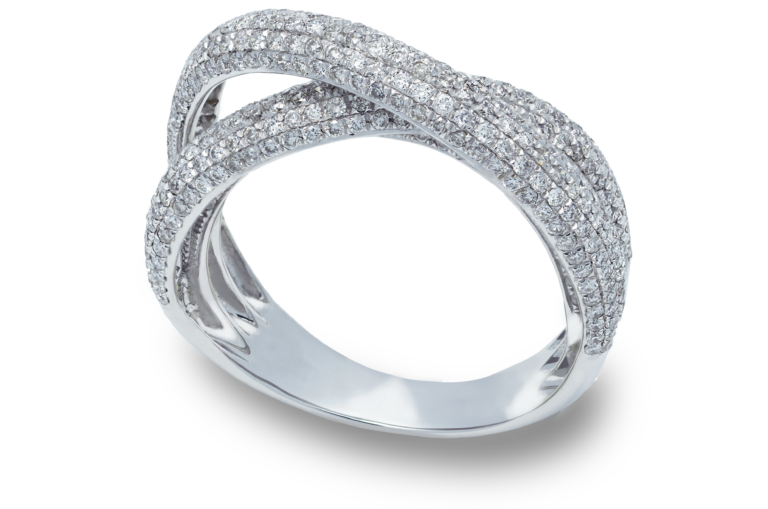When everything is at our fingertips, the meaning of Luxury itself climbs higher...

...to capture something greater than just material things and opulence.
The concept of luxury has indeed evolved beyond mere materialism and opulence, expanding to encompass a more profound and meaningful way of living. In contemporary discussions, luxury is increasingly associated with experiences, values, and a holistic approach to well-being. Here’s an exploration of how luxury has transformed into a word that describes the ability to live a peaceful and deep life with purpose:
Experiential Luxury: Rather than focusing solely on material possessions, modern luxury emphasizes meaningful experiences. This can include travel, cultural immersion, personal growth, and moments that contribute to a rich and fulfilling life.
Quality of Life: Luxury is now associated with an elevated quality of life that goes beyond financial wealth. It encompasses aspects such as health, relationships, and personal fulfillment. Living a luxurious life involves prioritizing well-being, mental health, and a balanced lifestyle.
Purpose and Meaning: True luxury is often linked to a sense of purpose and meaning in life. It involves aligning one’s actions and choices with personal values and contributing to a greater good. Living with purpose adds depth and significance to everyday experiences.
Joy and Emotional Wealth: The pursuit of joy and emotional wealth is considered a form of luxury. This includes deriving satisfaction from meaningful relationships, personal achievements, and the ability to appreciate life’s simple pleasures. Emotional well-being is recognized as a valuable aspect of luxury living.
Mindfulness and Presence: Luxury living involves being present in the moment and practicing mindfulness. It’s about savoring experiences, fostering gratitude, and appreciating the beauty in everyday life. Mindful living contributes to a sense of peace and depth.
Authenticity and Individuality: Authenticity is a key component of modern luxury. It involves expressing one’s individuality, embracing uniqueness, and cultivating a life that reflects personal values. The ability to live authentically is seen as a form of luxury in a world that often emphasizes conformity.
Connection with Nature and Sustainability: Luxury living extends to a connection with nature and a commitment to sustainability. Appreciating the environment, engaging in eco-friendly practices, and recognizing the interconnectedness of all living things contribute to a sense of luxury grounded in responsibility.
In this evolved understanding of luxury, the emphasis is on a life well-lived, marked by depth, purpose, and a genuine appreciation for the richness of human experience. It transcends superficial notions and aligns with a broader, more enlightened perspective on what it means to lead a truly luxurious life.
Shedding light on the new meaning of Luxury

With the dawn of a new era, the “definition of luxury is evolving, and the change applies to not only what people are spending money on, but how they’re doing it.” (Batarags, 2019) In addition to the world of luxury products “available at a click, […][this is] matched by an increased interest in unique, tailored experiences over goods.” (Batarags, 2019) Many sources include comfort, stress-free life and true happiness in their definition of luxury. Some of Merriam-Webster’s (Webster, 2023) definitions of luxury include:
- Something adding to pleasure or comfort but not absolutely necessary
- An indulgence in something that provides pleasure, satisfaction, or ease
Luxury is living the best life that you can

In a Forbes article interviewing four of the great luxury women leaders of our time, Annastasia Seebohm (known as the “Queen of Luxury” in lifestyle industries, CEO of Brilliant Minds Foundation, and former “Global CEO, [of the] Quintessentially Group, the world’s leading luxury lifestyle group” (Forbes, 2018) defines her concept of luxury as follows: “We are all so busy that time has become our most precious luxury. I travel frequently so it’s important to stop and take time, I also think that’s when the big ideas happen. Ultimately luxury is about living your best life, one that’s rich in experiences and learning, while allowing you time for the things you love the most.” Likewise, Robin Tauck (Former CEO, Tauck Inc., the third generation pioneer and leader in luxury travel and tours) responded “Luxury in my field I define as having Extraordinary, exclusive and stress-free access to special, unique or educational experiences that enrich and transform our lives and the lives of others.” (Forbes, 2018) In answer to the question of “how will luxury change over the next five years?” Sue Phillips (leading fragrance expert and CEO, Scenterprises) stated: “Over the next five years Luxury will create and offer meaningful, memorable, personalized, experiential, fun, educational, entertaining products brands, ‘experiences’ and events. No longer will luxury just be defined by price; brands will include all these metrics in order to appeal to consumers and rise above the competitive clutter.” (Forbes, 2018)
Time is a precious Luxury: Be careful what you spend it on.

In another Forbes’ article titled, “The Definition of Luxury is Expanding and Changing,” futurist Jared Weiner of The Future Hunters states, “the ‘three T’s’ of luxury now are: Time, Truth, and Trust. Time is of course the scarcest resource, the one thing we can never have more of. Post-pandemic, Weiner believes that consumers may want to use their time differently than before, having had the opportunity to re-evaluate their priorities while they were shut down or isolated.” (Kestenbaum, 2021) In short, luxury is now starting to be associated with something much greater than just monetary wealth and materialism. Is it possible that the last few generations have decided there’s more to life than making money and acquiring things and property? As many people know first-hand that money can’t buy happiness, research shows that “Rich people are more likely to be mean, […] according to a new study, that found those from poorer backgrounds are more likely to be kind.” (Morrison, 2022). Who wouldn’t prefer a solid state capable of exhibiting joy over misery, no matter what the circumstances… whether rich or poor?
"The three T's' of luxury now are: Time, Truth, and Trust."
– Jared Weiner of The Future Hunters

The three T’s of luxury—Time, Truth, and Trust—represent fundamental aspects of value and quality that are highly prized in various contexts, including personal experiences, relationships, and business interactions. Here’s an overview of each concept:
Time:
- Scarce Resource: Time is universally recognized as a scarce and irreplaceable resource. It is finite, and once spent, it cannot be regained.
- Quality of Experience: In the realm of luxury, time is often associated with experiences of exceptional quality, depth, and significance. Luxury experiences are characterized by the luxury of time—allowing individuals to savor and fully immerse themselves in the moment.
- Attention to Detail: Luxury brands and services often prioritize meticulous attention to detail, craftsmanship, and precision. This dedication to excellence reflects an acknowledgment of the value of time and a commitment to creating experiences that are worth savoring and cherishing.
Truth:
- Authenticity and Transparency: In the luxury industry, truth is synonymous with authenticity, integrity, and transparency. Luxury brands are expected to uphold the highest standards of quality, ethics, and craftsmanship, and to be honest and transparent in their communication with consumers.
- Genuine Materials and Craftsmanship: Luxury products are valued for their authenticity and the use of genuine materials and craftsmanship. Consumers are willing to pay a premium for products that are made with integrity and demonstrate a commitment to excellence.
- Cultivating Trust: Building trust with consumers is essential for luxury brands. By consistently delivering on promises, maintaining transparency, and upholding ethical standards, luxury brands can cultivate trust and loyalty among their clientele.
Trust:
- Relationship Building: Trust is the foundation of strong relationships, whether personal or professional. In the luxury industry, building trust with consumers is essential for long-term success and brand loyalty.
- Brand Reputation: Luxury brands invest significant effort in cultivating a positive reputation and building trust with consumers. A brand’s reputation for quality, reliability, and integrity can have a profound impact on consumer perception and purchasing decisions.
- Customer Experience: Luxury brands prioritize customer experience and strive to create memorable interactions that instill confidence and trust. From personalized service to attentive support, every touchpoint is an opportunity to reinforce trust and strengthen the relationship between the brand and the consumer.
In summary, the three T’s of luxury—Time, Truth, and Trust—underscore the importance of value, authenticity, and integrity in the luxury experience. By prioritizing these core principles, luxury brands can create meaningful and enduring connections with consumers, driving loyalty, satisfaction, and long-term success.
The Luxury of Time

Time is often considered a luxury because it is both precious and finite. Unlike other resources that can be replenished or acquired, time is irreplaceable once it is spent. Here are a few key reasons why time is considered a luxury:
Limited Availability: Each person is allocated a finite amount of time in their life, and once it’s gone, it cannot be retrieved. Time is a non-renewable resource, making it incredibly valuable and scarce. No matter how wealthy or influential someone may be, they cannot buy more time or extend their lifespan beyond its natural limits.
Irreplaceable Moments: Time is composed of moments, experiences, and opportunities that shape our lives. Every second, minute, and hour presents a chance to create memories, pursue goals, and connect with others. However, once these moments pass, they cannot be recreated or relived exactly as they were. This makes each moment unique and precious, underscoring the value of time as a luxury.
Equalizing Factor: Regardless of one’s socioeconomic status or background, everyone has the same 24 hours in a day. Time is the great equalizer, as it doesn’t discriminate based on wealth, power, or privilege. How individuals choose to allocate their time often reflects their priorities, values, and aspirations, shaping the trajectory of their lives.
Opportunity Cost: Every decision we make involves an opportunity cost—the value of the next best alternative foregone. When we choose to spend time on one activity, we are implicitly choosing not to spend it on other activities. Therefore, how we prioritize and allocate our time directly impacts the quality of our lives and the fulfillment of our goals.
Given the limited and precious nature of time, it’s essential to be mindful of how we choose to spend it. Making intentional decisions about how we allocate our time can lead to a more fulfilling and meaningful life. By recognizing time as a luxury and embracing each moment as an opportunity for growth, connection, and joy, we can make the most of the time we have. Ultimately, what we spend our time on is what our lives are made of, underscoring the importance of cherishing and making the most of every moment.
Opportunity Cost

The concept of opportunity cost is a fundamental principle in economics and decision-making. It refers to the value of the next best alternative that must be forgone when a decision is made to allocate resources, such as time, money, or effort, to one option over another.
In the context of time, every decision to spend time on a particular activity comes with an opportunity cost—the value of what could have been done with that time if it had been allocated differently. Here are a few key points to consider about opportunity cost in relation to time:
Trade-offs: When we choose to spend time on one activity, we are simultaneously choosing not to spend it on other activities. For example, if you decide to spend your evening watching a movie, the opportunity cost may include forgoing the opportunity to exercise, spend time with friends, or work on a personal project.
Scarcity: Time is a finite resource, which means there are limits to how much of it we have available. Since we cannot do everything we want simultaneously, we must prioritize and make trade-offs based on our preferences, goals, and constraints.
Decision Making: Understanding opportunity cost can help us make more informed decisions about how to allocate our time. By considering the alternatives and weighing their relative benefits and drawbacks, we can choose the option that offers the highest value or best aligns with our priorities.
Long-Term Impact: The cumulative effect of our time allocation decisions can have significant long-term consequences for our lives. Consistently choosing to invest time in activities that align with our goals and values can lead to personal growth, fulfillment, and success over time.
Flexibility: It’s important to recognize that opportunity cost is subjective and can vary depending on individual preferences, circumstances, and goals. What may be the best use of time for one person may not be the same for another. Flexibility and adaptability in decision-making allow us to navigate trade-offs and optimize our time allocation based on changing priorities and opportunities.
In summary, opportunity cost highlights the inherent trade-offs involved in allocating time and emphasizes the importance of making intentional choices that maximize value and align with our objectives. By considering the opportunity cost of our decisions, we can make more strategic and purposeful use of our time, ultimately leading to greater satisfaction and fulfillment in our lives.
The Luxury of Truth

The luxury of truth encompasses the profound value and significance of honesty, authenticity, and transparency in various aspects of life. Here’s an exploration of how truth can be considered a luxury:
Clarity and Understanding: Truth provides clarity and understanding in a world often shrouded in ambiguity and misinformation. When individuals have access to truthful information, they can make well-informed decisions, navigate complexities with confidence, and gain deeper insights into themselves and the world around them.
Authenticity and Integrity: Living in alignment with truth fosters authenticity and integrity in personal relationships, professional endeavors, and societal interactions. Authenticity entails being true to oneself, expressing genuine emotions and intentions, and upholding moral principles and values. In a society where superficiality and pretense abound, the luxury of truth lies in the ability to live authentically and with integrity.
Trust and Respect: Truth is the foundation of trust and respect in relationships. When individuals consistently speak and act truthfully, they earn the trust and respect of others. Trust is a precious commodity that takes time to build but can be easily shattered by dishonesty and deceit. Those who possess the luxury of truth enjoy strong, trusting relationships built on a foundation of honesty and transparency.
Empowerment and Liberation: Embracing truth empowers individuals to live with authenticity, pursue their passions, and fulfill their potential. When people are free to express their true selves and pursue their aspirations without fear of judgment or deception, they experience a sense of liberation and empowerment. The luxury of truth lies in the freedom to be oneself and live life on one’s own terms.
Peace of Mind and Well-Being: Truth contributes to peace of mind and emotional well-being by alleviating the stress and anxiety associated with deception and dishonesty. When individuals are truthful with themselves and others, they experience inner peace, mental clarity, and emotional resilience. The luxury of truth lies in the ability to live with a clear conscience and a tranquil heart.
Cultivation of Meaningful Connections: Truth fosters deep, meaningful connections with others based on mutual trust, understanding, and respect. Authentic relationships thrive on open communication, vulnerability, and shared values. Those who embrace the luxury of truth cultivate genuine connections that enrich their lives and bring fulfillment and joy.
In summary, the luxury of truth encompasses the profound benefits and rewards of living with honesty, authenticity, and transparency. Those who value truth as a luxury experience greater clarity, empowerment, and fulfillment in their personal and professional lives, fostering deeper connections and contributing to a more harmonious and authentic society.
The Luxury of Trust

The luxury of trust encompasses the profound value and significance of reliability, confidence, and mutual respect in relationships, interactions, and endeavors. Here’s an exploration of how trust can be considered a luxury:
Reliability and Dependability: Trust is the cornerstone of reliability and dependability in relationships and interactions. When individuals trust one another, they have confidence in each other’s abilities, intentions, and commitments. This reliability allows for smoother collaboration, effective communication, and the accomplishment of shared goals.
Confidence and Security: Trust breeds confidence and security in personal and professional relationships. Individuals who trust one another feel secure in expressing themselves, sharing their thoughts and feelings, and taking risks together. This confidence creates an environment where creativity, innovation, and growth can flourish, leading to greater personal and collective success.
Mutual Respect and Understanding: Trust fosters mutual respect and understanding among individuals, teams, and communities. When people trust each other, they listen attentively, empathize with one another’s perspectives, and work together to find common ground. This mutual respect creates a sense of unity and cohesion, enabling diverse groups to collaborate harmoniously toward shared objectives.
Emotional Connection and Support: Trust deepens emotional connections and facilitates meaningful support networks. Individuals who trust one another feel comfortable sharing their vulnerabilities, seeking guidance, and offering assistance when needed. This emotional connection provides a sense of belonging, acceptance, and camaraderie, enhancing overall well-being and resilience.
Ethical Conduct and Integrity: Trust is closely associated with ethical conduct and integrity. Individuals and organizations that uphold trustworthiness and honesty in their actions and decisions earn the respect and admiration of others. This integrity builds a positive reputation and fosters long-term relationships based on mutual trust and confidence.
Building Bridges and Breaking Barriers: Trust has the power to bridge divides and break down barriers between individuals, groups, and cultures. When trust exists, people are more willing to engage in open dialogue, collaborate across differences, and find common ground. This bridge-building fosters greater understanding, empathy, and cooperation, leading to positive social change and progress.
In summary, the luxury of trust encompasses the profound benefits and rewards of building and maintaining strong, trusting relationships based on reliability, confidence, mutual respect, and integrity. Those who value trust as a luxury experience greater harmony, collaboration, and fulfillment in their personal and professional lives, contributing to a more inclusive, compassionate, and resilient society.
Sophie Ireland of CEO World Magazine states that “[g]ood comfort, stress-free life, and true happiness are part of a luxury lifestyle.”
So what makes a person truly happy?

Research has extensively explored the impact of behaviors like kindness, social connections, giving, and meditation on happiness. These activities often lead to significant improvements in well-being and life satisfaction, as evidenced by the following studiess:
-
Kindness: Engaging in acts of kindness provides substantial boosts in happiness. Studies confirm that the positive effects of kindness are due to increases in social connection and improvements in both the giver’s and receiver’s mood (Rowland & Curry, 2019).
-
Social Connections: Strong social connections are a major predictor of happiness. Individuals with robust social relationships have higher levels of subjective well-being and are generally more resilient to stress (Diener & Seligman, 2002).
-
Giving and Altruism: Giving to others can significantly enhance the giver’s happiness, a phenomenon sometimes referred to as the “helper’s high.” Altruistic behaviors activate regions of the brain associated with pleasure and reward (Aknin et al., 2013).
-
Meditation: Regular meditation practices are linked to increased happiness and decreased depression. Mindfulness meditation, in particular, improves emotional regulation and enhances overall psychological well-being (Goyal et al., 2014).
Practices such as being kind, maintaining social ties, giving, and meditating not only enrich individual lives but also have a compounded positive effect on societal happiness as a whole. Each of these activities nurtures well-being and fosters a greater sense of community and connection.
Happiness comes from...

Being outdoors, surrounding oneself with children, engaging in physical activity, and indulging in creative endeavors are all activities that have been studied for their positive effects on happiness. These behaviors contribute to enhanced mental health and overall well-being, as evidenced by the following studies:
-
Being Outdoors: Exposure to natural environments significantly boosts mood and happiness. This effect is often attributed to nature’s ability to reduce stress, enhance mood, and improve cognitive function (Hartig, Mitchell, de Vries, & Frumkin, 2014).
-
Being Around Children: Interactions with children can increase life satisfaction and happiness, particularly among parents and caregivers. This joy likely stems from the meaningful and fulfilling experiences children bring into lives (Nelson et al., 2014).
-
Physical Activity: Regular physical activity is a well-documented contributor to improvements in mood and happiness. Exercise releases endorphins, often referred to as feel-good hormones, which can alleviate symptoms of depression and anxiety (Reed & Ones, 2006).
-
Creativity: Engaging in creative activities such as painting, writing, or playing music significantly enhances well-being and happiness. Creativity is closely linked to increased positive emotions, higher levels of flow and engagement, and even prolonged life satisfaction (Richards, 2007).
Activities such as enjoying the outdoors, spending time with children, being physically active, and being creative are not only enjoyable but also boost happiness significantly. These pursuits support both psychological well-being and physical health, making them valuable practices for anyone looking to enhance their quality of life.
...things higher than money and material goods.

Luxxacation presents an opportunity, no matter who you are or where you’re at in life, to empower you as an individual to achieve the absolute best that you can, with a vision to help you climb higher. Seek the truth and you will find it… expand the journey of your lifetime with Luxxacation. There is an incredible future awaiting you.

- Aknin, L. B., Dunn, E. W., & Norton, M. I. (2013). Spending money on others promotes happiness. Proceedings of the National Academy of Sciences, 105(26), 10570-10575. https://doi.org/10.1073/pnas.0808879105
- Batarags, Lina. 2019. Millionaires are showing off their money differently than they used to, and it’s led to the creation of 2 distinct luxury worlds. Business Insider. (28 June 2023). https://www.businessinsider.com/millionaire-spending-habits-experience-shopping-two-worlds-discreet-wealth-2019-1.
- Diener, E., & Seligman, M. E. P. (2002). Very happy people. Psychological Science, 13(1), 81-84. https://doi.org/10.1111/1467-9280.00415
- Goyal, M., Singh, S., Sibinga, E. M., Gould, N. F., Rowland-Seymour, A., Sharma, R., … & Haythornthwaite, J. A. (2014). Meditation programs for psychological stress and well-being: a systematic review and meta-analysis. JAMA Internal Medicine, 174(3), 357-368. https://doi.org/10.1001/jamainternmed.2013.13018
- Hartig, T., Mitchell, R., de Vries, S., & Frumkin, H. (2014). Nature and health. Annual Review of Public Health, 35, 207-228. https://doi.org/10.1146/annurev-publhealth-032013-182443
- Ireland, Sophie. 2021. How to Live a Luxury Lifestyle. The CEOWORLD magazine LTD. (29 June 2023). https://ceoworld.biz/2021/12/27/how-to-live-a-luxury-lifestyle/.
- Kestenbaum, Richard. 2021. The Definition of Luxury Is Expanding And Changing. Forbes. (28 June 2023). https://www.forbes.com/sites/richardkestenbaum/2021/12/16/the-definition-of-luxury-is-expanding-and-changing/?sh=2bafa2c66a13
- “luxury.” Merriam-Webster.com. 2023. https://www.merriam-webster.com/dictionary/luxury (28 June 2023).
- Morrison, Ryan. 2022. Money really IS the root of all evil! Rich people are more likely to be mean like Scrooge while the poor are kinder Tiny Tims, research shows. Daily Mail. https://www.dailymail.co.uk/sciencetech/article-10419679/Rich-people-likely-mean-poor-kinder-research-shows.html
- Nelson, S. K., Kushlev, K., English, T., Dunn, E. W., & Lyubomirsky, S. (2014). In defense of parenthood: Children are associated with more joy than misery. Psychological Science, 24(1), 3-10. https://doi.org/10.1177/0956797612447798
- Reed, J., & Ones, D. S. (2006). The effect of acute aerobic exercise on positive activated affect: A meta-analysis. Psychology of Sport and Exercise, 7(5), 477-514. https://doi.org/10.1016/j.psychsport.2005.11.003
- Reiss, Robert. 2018. Women Leaders Define Luxury Today And Tomorrow. Forbes. (29 June 2023). https://www.forbes.com/sites/robertreiss/2018/05/25/women-leaders-define-luxury-today-and-tomorrow/?sh=75230fda62e0
- Richards, R. (2007). Everyday creativity and new views of human nature: Psychological, social, and spiritual perspectives. American Psychological Association. https://doi.org/10.1037/11595-000
- Rowland, L., & Curry, O. (2019). A range of kindness activities boost happiness. The Journal of Social Psychology, 159(3), 340-343. https://doi.org/10.1080/00224545.2018.1469461
